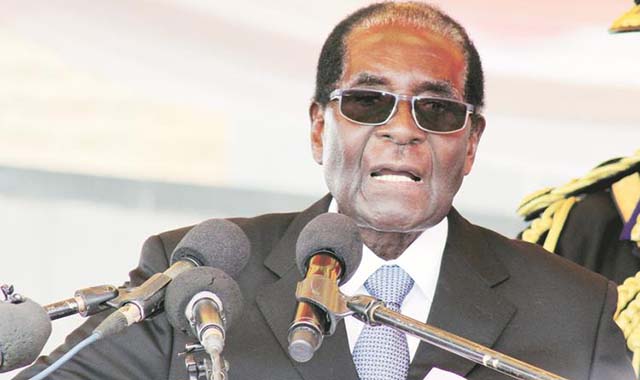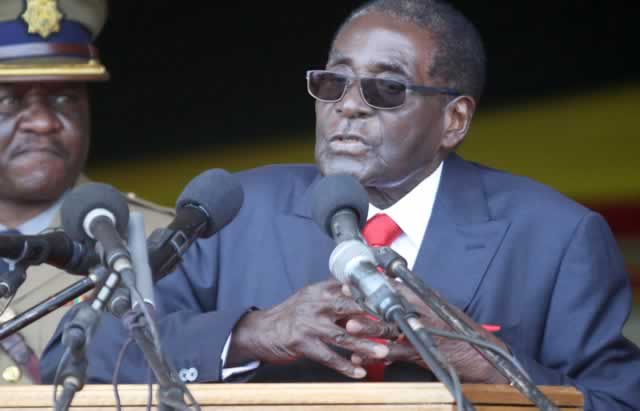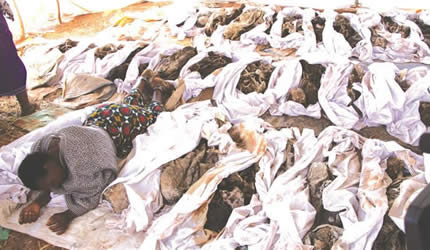Zanu Day and supremacy of politics of the gun

Lovemore Ranga Mataire Senior Writer
Heroes Day is a day set aside by Government to commemorate and reflect upon the suffering and supreme sacrifice of patriotic sons and daughters who waged the arduous struggle against settler colonialism. Coincidently, August 8 is also the day Zanu was born at Enos Nkala’s house in 1963 in Highfield, Harare, by 22 nationalists who felt the need to heighten the struggle through an armed insurrection.
Zanu-Day used to hold a special place in the hearts of combatants during the war for it was never lost in their memory that it was the political party that had given birth to the military wing (Zanla) that rallied thousands of young people to commit to the liberation of their country. A number of activities characterised Zanu-Day at training and refugee camps outside the country and even among Zimbabweans in the Diaspora.
Zanu-Day was also commemorated in liberated zones where traditional dances and various artistic activities formed the order of the day. The creativity of some became that of all, men and women, young and old; from the north to the south — the new revolutionary Zimbabwe culture was being born.
Zanu-PF director of Information and Publicity Cde Steven Trinity Chidawanyika said one of the common plays often performed during Zanu-Day was called “The People are Invincible.”
“This was a revolutionary play written, acted and produced by Zanla combatants which exposes to the marrow and unequivocally condemned the so-called internal settlement,” Cde Chidawanyika said.
The Internal Settlement was an agreement signed on March 3, 1978 between the then Prime Minister of Rhodesia Ian Smith and so-called moderate African nationalist leaders comprising of Bishop Abel Muzorewa, Ndabaningi Sithole and Senator Chief Chirau.
The agreement led to the formation of an interim government that included Africans for the first time in Rhodesia. This was the agreement that was condemned by the Zanla and Zipra combatants as treacherous and piecemeal as the electorate qualified to vote on the basis of educational stands and/or income and worth of one’s property.
This criteria essentially marginalised the majority Africans as they neither possessed the requisite education and nor owned any property. Thus in the play, Muzorewa, Chirau and Sithole are portrayed as stooges and traitors and denounced for being spoilers bent on holding up genuine independence in which Africans would be the masters of his destiny
“The only answer was the gun. The internal settlement and all it stood for had to be crushed. We had to carry the revolution through to the end,” said Cde Chidawanyika as he recounted on the importance of the play.
In one of his messages during Zanu-Day on August 8, 1978 published in the Zimbabwe News of July-August (the official organ of the party published in Mozambique by the information and publicity department), President Mugabe urged the combatants never to relent for the war was “people’s war, fought by the people and for the people.”
President Mugabe also took time to remind fighters of the supremacy of politics over the gun saying; “Throughout, the fundamental principle adhered to by our Zanla forces has been that of the governance of the gun by our politics, “politics governs the gun.”
In other words the war we are waging being a liberation war, has political principles and objectives governing it. It is in pursuance of our set political objectives and in accordance with our accepted principles that we are fighting a bitter war and sacrificing our lives.”
The President reminded combatants and party supporters that Zanu’s political goals and arch principles were enunciated at the party’s congress held in Gwelo in May 1964 in the party constitution and policy statement. It was at the Gwelo congress that it was explicitly explained that political direction translates itself into the direction of our war, for before the taking of arms, the party had realised the existence of a political problem requiring guns as remedy.
“This is why I said in September last year (1977), at the First Enlarged Session of our Central Committee, that the trajectory our bullets is political, and so indeed is the final target. Remember, our gun differs from that of a robber in that ours is political and robber’s criminal.
“We have a political cause while the robber has a criminal cause. Our cause being a people’s cause and selfless in essence. The robber’s cause being individualistic and self-enriching is unjust and selfish,” explained President Mugabe.
President Mugabe concluded his message by urging members to remain united for it was unity that had bound everyone together. He defined unity as harmony that draws us together under the given leadership of the party towards the achievements of its goals.
“Unity is in fact more than mere harmony. It is an active bond of aspirants who share common given political beliefs. Unity is integrative of constructive or progressive or revolutionary forces in the direction of set.”










Comments